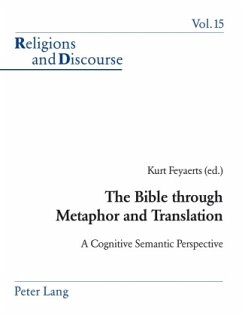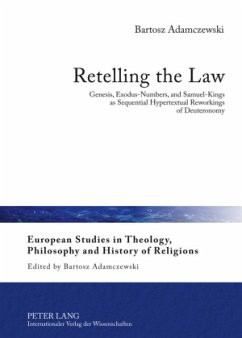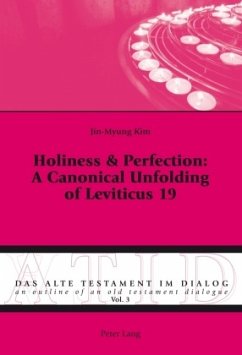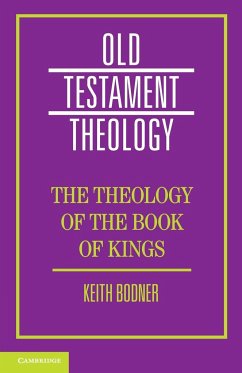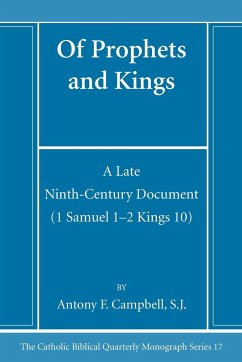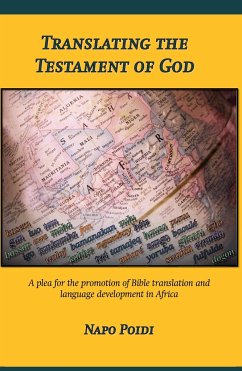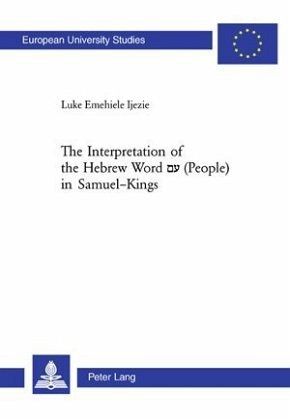
The Interpretation of the Hebrew Word (People) in Samuel-Kings
Dissertationsschrift
Versandkostenfrei!
Versandfertig in 6-10 Tagen
99,95 €
inkl. MwSt.

PAYBACK Punkte
0 °P sammeln!
This study of the word "people" in the biblical context touches one of the central issues of biblical literature. The author addresses the semantic and literary-critical problems involved in interpreting the Hebrew word within the complex texts of 1-2 Samuel and 1-2 Kings. While the word is often rendered by the English word "people" and its cognates in the modern languages, it is also shown that the idea of "people", together with its semantic range in the modern usage, is not identical to the ancient Hebrew. Concerted effort is thus made to identify the basic factors and patterns that explai...
This study of the word "people" in the biblical context touches one of the central issues of biblical literature. The author addresses the semantic and literary-critical problems involved in interpreting the Hebrew word within the complex texts of 1-2 Samuel and 1-2 Kings. While the word is often rendered by the English word "people" and its cognates in the modern languages, it is also shown that the idea of "people", together with its semantic range in the modern usage, is not identical to the ancient Hebrew. Concerted effort is thus made to identify the basic factors and patterns that explain its meaning in various Hebrew contexts. The study explains how expresses both Israel's identity as a secular polity as well as its identity as a religious entity. The discussion is carried out in the light of a number of chosen texts, and these are analyzed both synchronically and diachronically.



